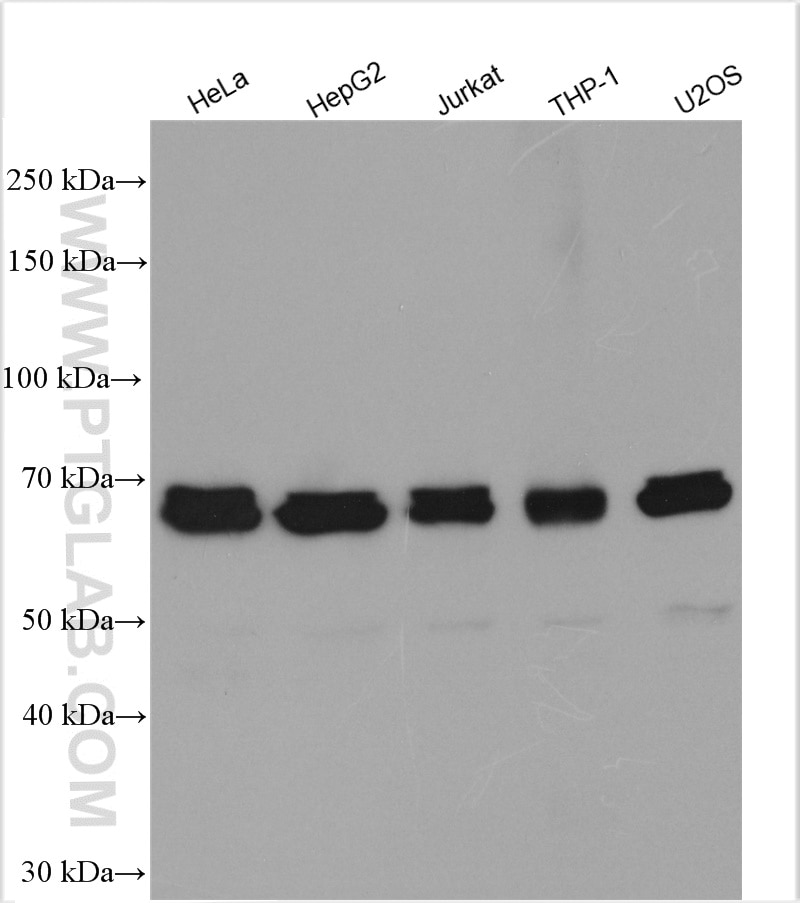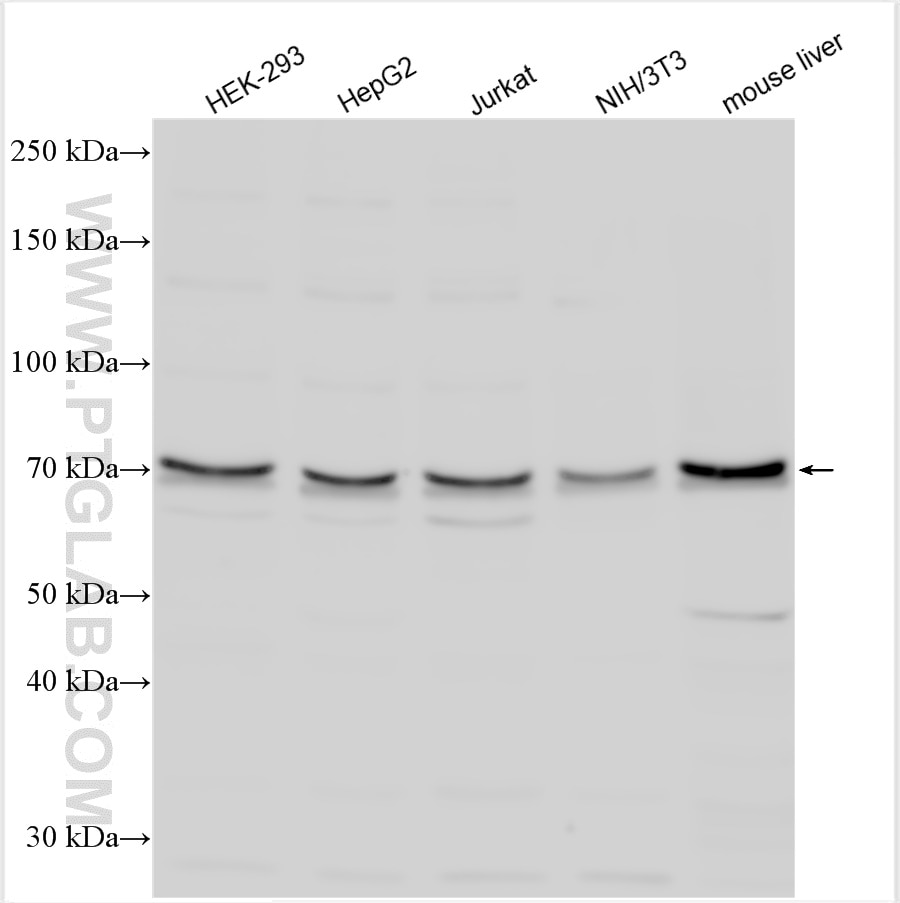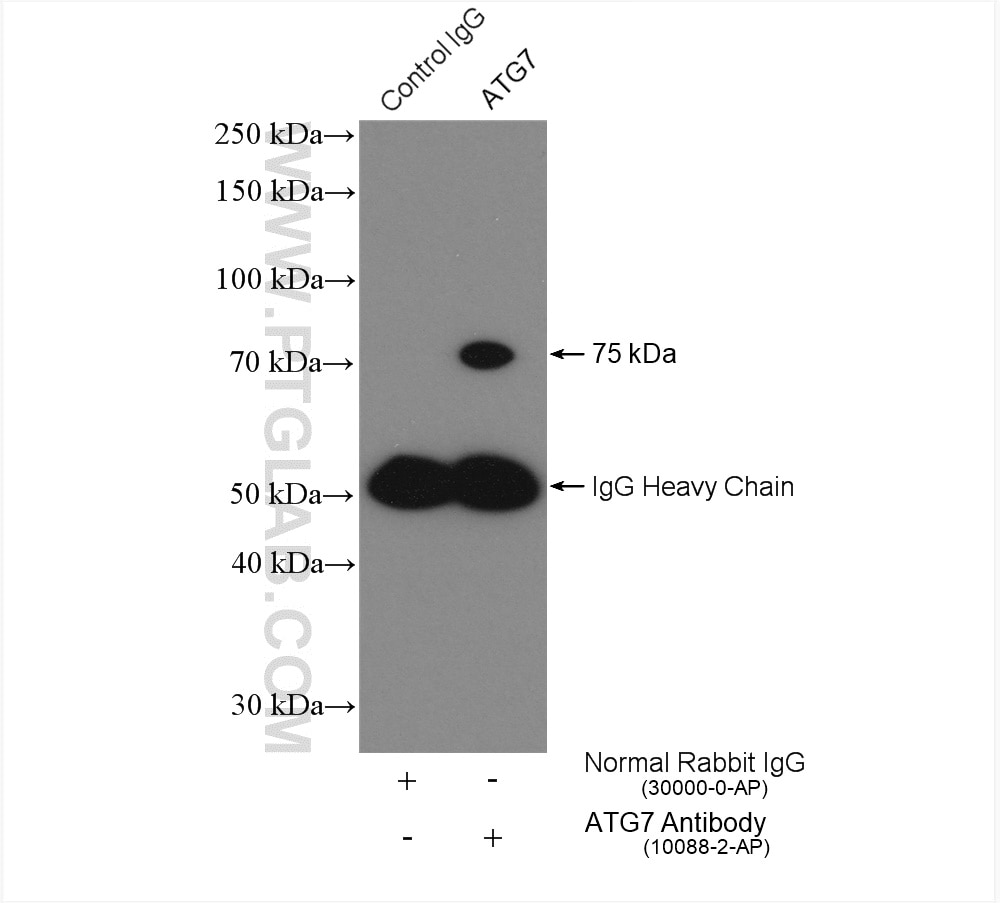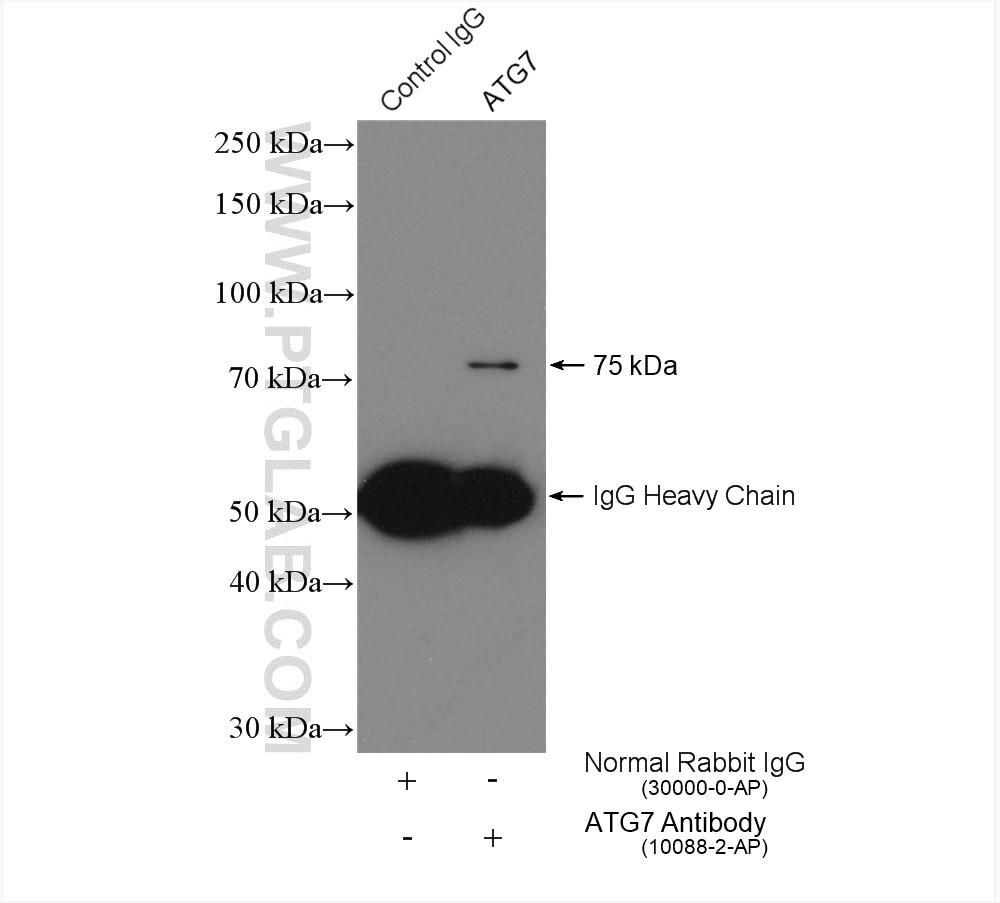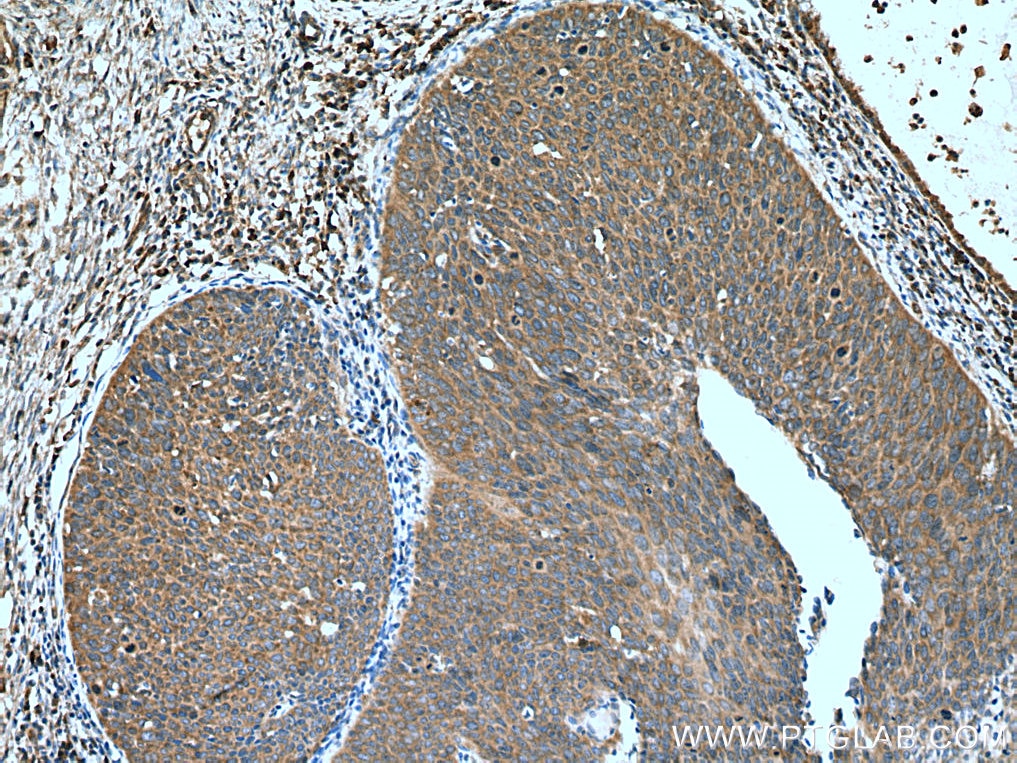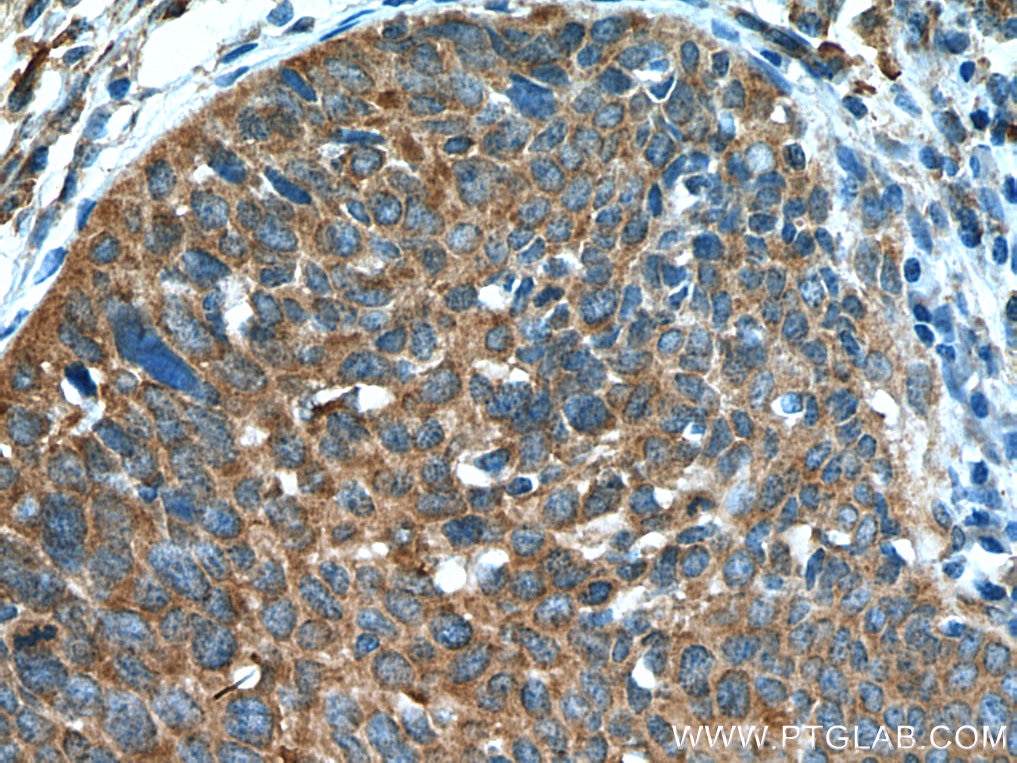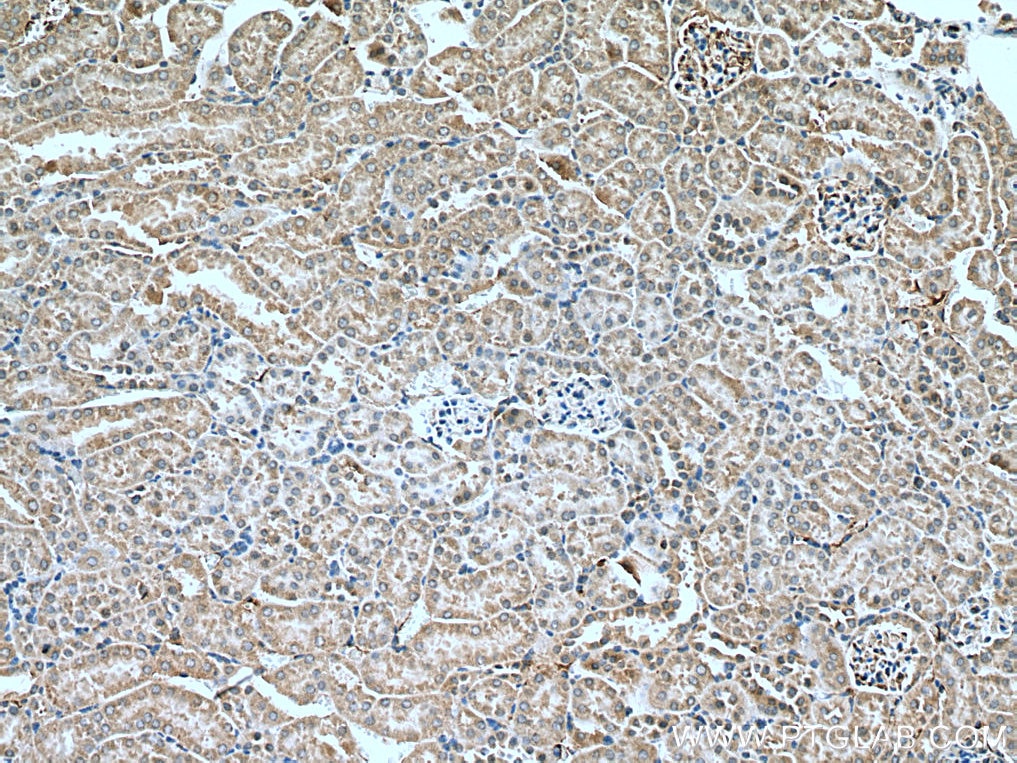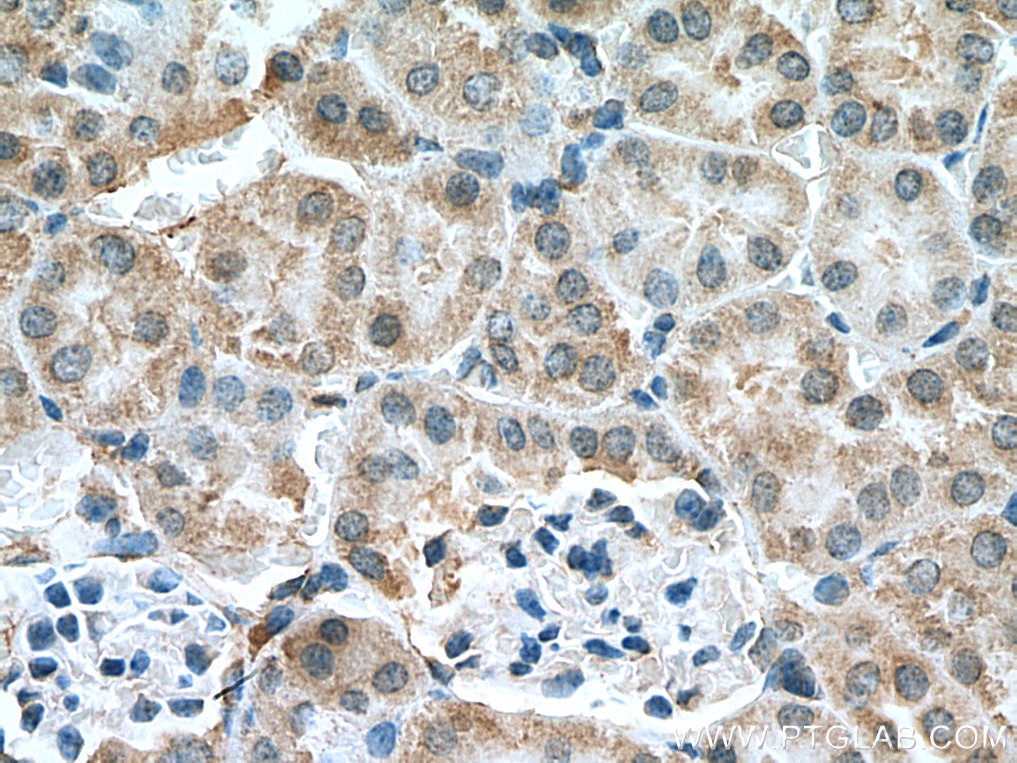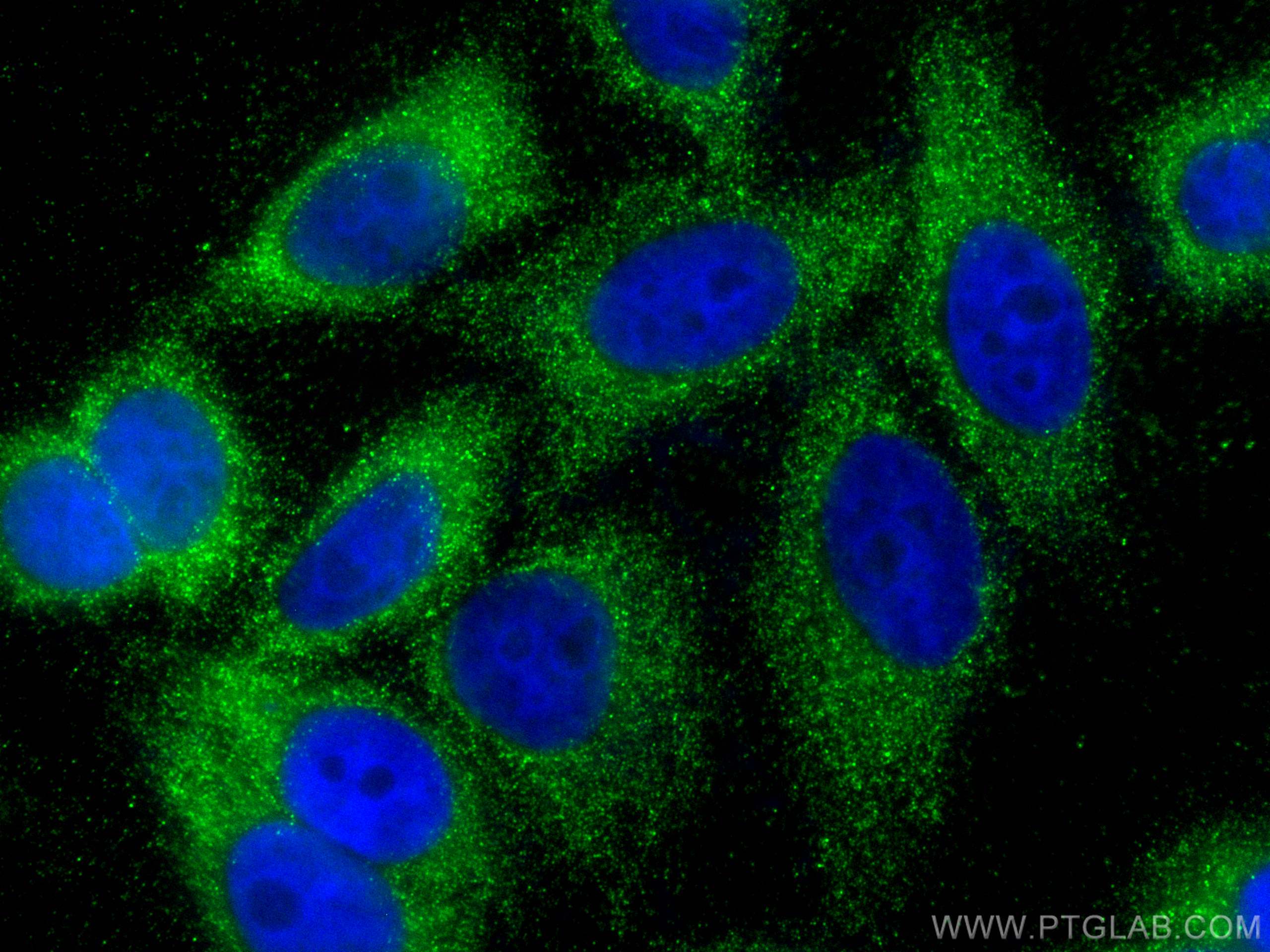Validation Data Gallery
Tested Applications
| Positive WB detected in | HeLa cells, HEK-293 cells, HepG2 cells, Jurkat cells, NIH/3T3 cells, mouse liver tissue, THP-1 cells, U2OS cells |
| Positive IP detected in | HT-1080 cells, NIH/3T3 cells |
| Positive IHC detected in | human cervical cancer tissue, mouse kidney tissue Note: suggested antigen retrieval with TE buffer pH 9.0; (*) Alternatively, antigen retrieval may be performed with citrate buffer pH 6.0 |
| Positive IF/ICC detected in | HepG2 cells |
Recommended dilution
| Application | Dilution |
|---|---|
| Western Blot (WB) | WB : 1:500-1:3000 |
| Immunoprecipitation (IP) | IP : 0.5-4.0 ug for 1.0-3.0 mg of total protein lysate |
| Immunohistochemistry (IHC) | IHC : 1:50-1:500 |
| Immunofluorescence (IF)/ICC | IF/ICC : 1:50-1:500 |
| It is recommended that this reagent should be titrated in each testing system to obtain optimal results. | |
| Sample-dependent, Check data in validation data gallery. | |
Published Applications
| KD/KO | See 23 publications below |
| WB | See 145 publications below |
| IHC | See 17 publications below |
| IF | See 13 publications below |
| IP | See 1 publications below |
| CoIP | See 1 publications below |
Product Information
10088-2-AP targets ATG7 in WB, IHC, IF/ICC, IP, CoIP, ELISA applications and shows reactivity with human, mouse samples.
| Tested Reactivity | human, mouse |
| Cited Reactivity | human, mouse, rat, pig, chicken, hamster, goat, turtle, prawn |
| Host / Isotype | Rabbit / IgG |
| Class | Polyclonal |
| Type | Antibody |
| Immunogen |
CatNo: Ag0142 Product name: Recombinant human ATG7 protein Source: e coli.-derived, PGEX-4T Tag: GST Domain: 293-563 aa of BC000091 Sequence: AFSPDCPKAVGWEKNQKGGMGPRMVNLSECMDPKRLAESSVDLNLKLMCWRLVPTLDLDKVVSVKCLLLGAGTLGCNVARTLMGWGVRHITFVDNAKISYSNPVRQPLYEFEDCLGGGKPKALAAADRLQKIFPGVNARGFNMSIPMPGHPVNFSSVTLEQARRDVEQLEQLIESHDVVFLLMDTRESRWLPAVIAASKRKLVINAALGFDTFVVMRHGLKKPKQQGAGDLCPNHPVASADLLGSSLFANIPGYKLGCYFCNDVVAPGDST 相同性解析による交差性が予測される生物種 |
| Full Name | ATG7 autophagy related 7 homolog (S. cerevisiae) |
| Calculated molecular weight | 78 kDa |
| Observed molecular weight | 68-78 kDa |
| GenBank accession number | BC000091 |
| Gene Symbol | ATG7 |
| Gene ID (NCBI) | 10533 |
| RRID | AB_2062351 |
| Conjugate | Unconjugated |
| Form | |
| Form | Liquid |
| Purification Method | Antigen affinity purification |
| UNIPROT ID | O95352 |
| Storage Buffer | PBS with 0.02% sodium azide and 50% glycerol{{ptg:BufferTemp}}7.3 |
| Storage Conditions | Store at -20°C. Stable for one year after shipment. Aliquoting is unnecessary for -20oC storage. |
Background Information
Atg7 is an E1-like enzyme that is specifically involved in autophagosome formation and is essential for autophagy. As an autophagic-related protein it is required for linking to Atg12, Atg5 and Atg8, which are essential for Atg conjugation and autophagosome formation. Atg7 has been reported as an important regulator of autophagy with starvation-induced or chemotherapeutic agent treatment. The high expression level of ATG7 is related to the survival of patients with breast cancer. There are several isoforms of ATG7 protein ranged from 68 kDa to 78 kDa.
Protocols
| Product Specific Protocols | |
|---|---|
| IF protocol for ATG7 antibody 10088-2-AP | Download protocol |
| IHC protocol for ATG7 antibody 10088-2-AP | Download protocol |
| IP protocol for ATG7 antibody 10088-2-AP | Download protocol |
| WB protocol for ATG7 antibody 10088-2-AP | Download protocol |
| Standard Protocols | |
|---|---|
| Click here to view our Standard Protocols |
Publications
| Species | Application | Title |
|---|---|---|
Adv Sci (Weinh) Inhibition of CK2/ING4 Pathway Facilitates Non-Small Cell Lung Cancer Immunotherapy | ||
Nat Commun Inhibition of the CDK2 and Cyclin A complex leads to autophagic degradation of CDK2 in cancer cells.
| ||
Autophagy Negative pressure wound therapy improves bone regeneration by promoting osteogenic differentiation via the AMPK-ULK1-autophagy axis. | ||
Autophagy AP2M1 mediates autophagy-induced CLDN2 (claudin 2) degradation through endocytosis and interaction with LC3 and reduces intestinal epithelial tight junction permeability.
| ||

